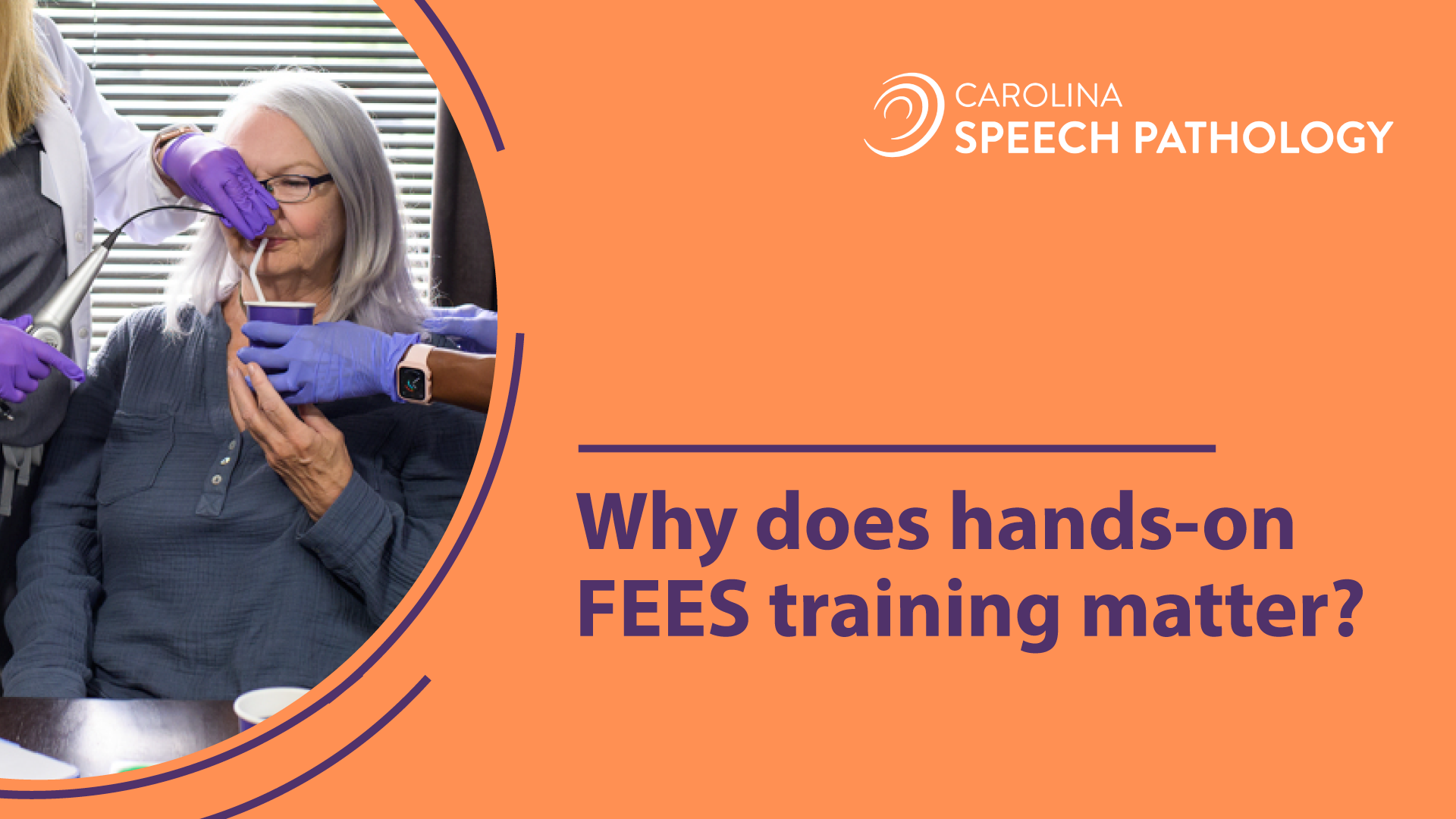When looking into FEES training, you may find a variety of formats based on the provider – virtual training, hands-on training, and hybrid options are all currently available. FEES training includes both a technical component and a cognitive component. The current FEES training guideline is for SLPs to receive in-person, direct supervision when working toward FEES competency. Let’s talk about why a strictly virtual format is not adequate.
Langmore et al’s recent Tutorial on Clinical Practice for Use of FEES describes how FEES training “should be conducted under direct supervision of a skilled SLP (or physician) mentor. Importantly, this mentor should be skilled in both performing flexible endoscopies and interpreting a FEES exam.” The paper goes on to say that “since different challenges are present when performing endoscopy with a patient as opposed to a health volunteer, it is imperative that this step not be shortened.”
In-person training is imperative. While assistance with interpretation can be conducted virtually, there are safety considerations when mentees are working on becoming competent with the technical component of the exam. Here is a list of technical competencies that must be mastered during FEES training:
|
Carolina Speech Pathology’s FEES training courses are a hybrid model: there is a prerequisite virtual course that participants complete prior to the live course, and the live course includes both lecture and a hands-on technical training portion. We support the above guidelines in terms of continuing FEES training with an onsite mentor following the completion of an Introduction to FEES training course. Carolina Speech Pathology can support you no matter where you are in your journey to FEES competency.
If you would like to explore other options for in-person FEES training, please look into providers who offer a hands-on training portion within their curriculum.
Happy FEES’ing!

